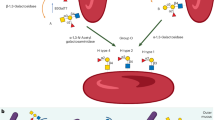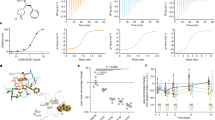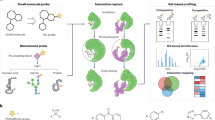Abstract
RECENTLY, Sturge and Whittaker1 reported on the relative rates of hydrolysis of a series of straight-chain aliphatic esters by the aliphatic esterase (ali-esterase of Richter and Croft2) of horse plasma. With several notable exceptions, acetates were hydrolysed more rapidly than the corresponding propionate or n-butyrate (that is, the optimal number of carbon atoms in the n-acyl group was usually two) and n-butyl esters were hydrolysed more rapidly than the corresponding n-propyl or n-amyl esters (that is, the optimal number of carbon atoms in the n-alkyl group was usually four).
This is a preview of subscription content, access via your institution
Access options
Subscribe to this journal
Receive 51 print issues and online access
$199.00 per year
only $3.90 per issue
Buy this article
- Purchase on Springer Link
- Instant access to full article PDF
Prices may be subject to local taxes which are calculated during checkout
Similar content being viewed by others
References
Sturge, L. M., and Whittaker, V. P., Biochem. J., 47, 518 (1950).
Richter, D., and Croft, P. G., Biochem. J., 36, 746 (1942).
Rossiter, R. J., and Wong, Esther, J. Biol. Chem., 180, 933 (1949).
Author information
Authors and Affiliations
Rights and permissions
About this article
Cite this article
WONG, E. Ali-esterase of Rabbit Polymorphonuclear Leucocytes. Nature 168, 80–81 (1951). https://doi.org/10.1038/168080a0
Issue Date:
DOI: https://doi.org/10.1038/168080a0
Comments
By submitting a comment you agree to abide by our Terms and Community Guidelines. If you find something abusive or that does not comply with our terms or guidelines please flag it as inappropriate.



